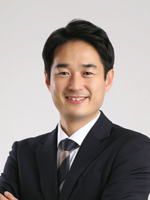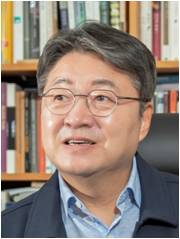ABCH 논문보기
X공지사항
본 학회에서는 회원님들께 ABCH 논문을 무료로 열람할 수 있는 ID, PW를 제공해드리고 있습니다.
하지만, 현재 Internet Explorer 환경에서의 ABCH 무료열람에 문제가 있어 회원님들께 Mozilla Firefox 또는 Google Chrome을 통한 접근을 안내 드립니다.
경로:
아래 링크 중 하나 선택하여 다운로드 및 설치 -> 해당 프로그램으로 학회 홈페이지 검색 -> ABCH 논문보기 클릭 -> 기존 ID, PW 입력 후, 논문 검색
springer 전용 아이디로 로그인해주시기 바랍니다.
(당해년도 연회비 납부자에 한해 구독 가능)
아이디, 비밀번호를 모를 경우 사무국에 문의해주세요.
문의: 02-568-0799 / journal@ksabc.kr
학술대회
Special Lectures

SL-1 Curriculum Vitae 
Integrating Generative AI in Academic Research: From Idea Generation to Data Analysis Automation
Hyun-Soo Ahn*, Min-Soo Shin, Seung-In Lee, Dae-woo Shin
R&BD Partners, Yong-In, Republic of Korea
The rapid advancement of generative AI technologies has significantly transformed the landscape of academic research. This lecture aims to provide a comprehensive overview of how researchers can strategically incorporate AI tools throughout the entire research process—from ideation and literature review to writing, data analysis, and automation.
The first half of the curriculum focuses on research ideation and academic writing using generative AI. Participants will explore how AI models such as GPT can assist in the initial stages of research design by facilitating idea generation, topic refinement, and research planning. Through case-based demonstrations, attendees will learn to outline a research proposal, create a logical table of contents, and draft abstracts using AI assistance. Emphasis will be placed on the use of AI tools like Perplexity and Consensus for literature search, and Markdown for structuring academic documents. Practical sessions will guide participants through the process of creating a research topic and draft outline using AI prompts.
In the second half, attention shifts toward data analysis and automation using AI and Python. The session begins with foundational data handling techniques, where GPT is applied for spreadsheet-based tasks such as cleaning, normalization, and pattern analysis. The curriculum then delves into advanced statistical analysis, including regression and correlation, with an introduction to Python libraries like Pandas and Matplotlib for visualization and computation. Finally, the lecture covers Google Colab integration, demonstrating how researchers can automate data workflows—loading, preprocessing, modeling, and saving results—by combining Colab notebooks with GPT-generated code snippets.
Throughout the session, real-time demonstrations and hands-on activities will provide participants with the skills necessary to apply generative AI tools effectively in their own academic research. By the end of the lecture, attendees will gain not only technical know-how but also strategic insights into the ethical and practical use of AI in scholarly environments.
This session is ideal for early-career researchers, graduate students, and academic professionals seeking to leverage AI for enhanced productivity, creativity, and data-driven insight in their research processes.
The first half of the curriculum focuses on research ideation and academic writing using generative AI. Participants will explore how AI models such as GPT can assist in the initial stages of research design by facilitating idea generation, topic refinement, and research planning. Through case-based demonstrations, attendees will learn to outline a research proposal, create a logical table of contents, and draft abstracts using AI assistance. Emphasis will be placed on the use of AI tools like Perplexity and Consensus for literature search, and Markdown for structuring academic documents. Practical sessions will guide participants through the process of creating a research topic and draft outline using AI prompts.
In the second half, attention shifts toward data analysis and automation using AI and Python. The session begins with foundational data handling techniques, where GPT is applied for spreadsheet-based tasks such as cleaning, normalization, and pattern analysis. The curriculum then delves into advanced statistical analysis, including regression and correlation, with an introduction to Python libraries like Pandas and Matplotlib for visualization and computation. Finally, the lecture covers Google Colab integration, demonstrating how researchers can automate data workflows—loading, preprocessing, modeling, and saving results—by combining Colab notebooks with GPT-generated code snippets.
Throughout the session, real-time demonstrations and hands-on activities will provide participants with the skills necessary to apply generative AI tools effectively in their own academic research. By the end of the lecture, attendees will gain not only technical know-how but also strategic insights into the ethical and practical use of AI in scholarly environments.
This session is ideal for early-career researchers, graduate students, and academic professionals seeking to leverage AI for enhanced productivity, creativity, and data-driven insight in their research processes.

SL-2 Curriculum Vitae 
Knowing, Synthesizing, Applying Bugs for Creativity
Eungbin Kim
Department of Systems Biology, Yonsei University, Seoul 03722, Republic of Korea
Microorganisms are increasingly recognized not only as subjects of scientific investigation but also as catalysts for creative expression across disciplines.
This presentation explores how microbiological knowledge and techniques are being integrated into artistic, educational, and design contexts, reframing microbes
as active participants in cultural production. Recent developments in synthetic biology and microbial engineering have enabled novel applications such as agar art,
which utilizes pigment-producing bacteria as living media, and bacterial sound research, which translates microbial activity into auditory forms through biosensing
and sonification. These examples highlight the potential of microorganisms to serve as both material and metaphor in creative processes. By emphasizing the role of
microbes in transdisciplinary innovation, this work proposes a new paradigm that bridges science and the arts. Such convergence not only broadens the scope of
microbiological engagement but also encourages new ways of thinking about sustainability, collaboration, and the invisible networks that shape life and culture.















